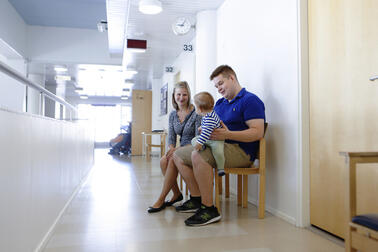
The survey contained nine questions about the implementation of non-discrimination and gender equality in Helsinki and City services and activities. Almost nine in ten (87%) residents of Helsinki feel that they can live a good life as they are. An equally large proportion of residents also welcome the fact that people of diverse backgrounds and characteristics live and do business in Helsinki. The proportions are exactly the same as four years ago, when the most recent resident survey on equality and non-discrimination was carried out.
Respondents were most critical of the City's success in preventing digital exclusion – only around a quarter (24%) of respondents thought the City had done a good job. Accessibility of digital services and the ability to cope among those who are unable to access digital services were among examples of issues that many respondents wanted the City to pay more attention to in the future.
As in the previous survey, men had a more positive outlook than women on the current state of non-discrimination and gender equality as a whole.
The survey also looked at respondents' quality of life and their experience of inclusion. Three out of four respondents identifying with a minority group (75%) described their quality of life as at least fairly good, compared to 92% of other respondents. The experience of inclusion was also somewhat weaker for minority respondents than for others.
One in ten respondents has experienced discrimination over the past year
Roughly one in ten respondents said that they had experienced discrimination (10%) or inappropriate treatment (8%) in City services in the past year. Overall, 21% had experienced discrimination and 15% had experienced inappropriate treatment in City services. The most common grounds for discrimination and mistreatment were age, health and language, and the experiences were most common in healthcare services. The result may be partly influenced by the fact that respondents aged 65 and over were over-represented in the survey relative to the population of Helsinki.
Only 12% of those who had experienced discrimination had reported it, most of them either by giving feedback directly to the service providers in question or through the City of Helsinki's online feedback service. The City encourages people to report discrimination and inappropriate treatment at a low threshold.
The survey was carried out by random sampling in autumn 2024 with responses from around 1,000 residents of Helsinki aged 16 and over.
Survey provides food for thought for plan preparation
The responses to the survey will be used in the preparation for the new City of Helsinki equality and non-discrimination plan for services. In addition to the survey, non-discrimination and gender equality in Helsinki has also been investigated in other ways, such as interviews with organisations representing different population and minority groups and the City's influencing bodies. They praised the City for its receptiveness in terms of youth services, consideration for gender diversity, the Senior Info service and cooperation with the third sector, among other things. For example, recognising diversity within different minority groups and promoting the safety and inclusion of people who are particularly vulnerable because of their many different characteristics were identified as areas for development.
Both the resident survey and the interviews highlighted the importance of City staff having sufficient skills for non-discriminatory interaction with customers. The City Board will decide on a new equality and non-discrimination plan for services in early 2026. The current plan is valid until the end of the year.


